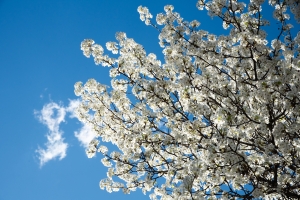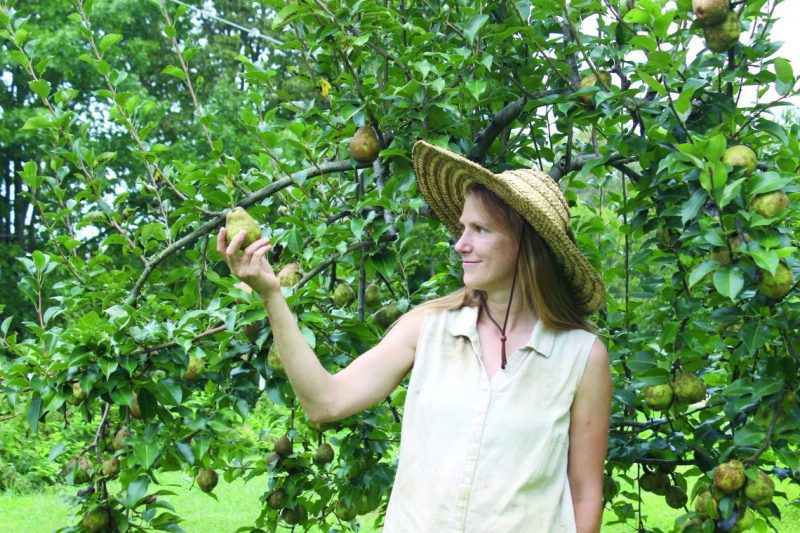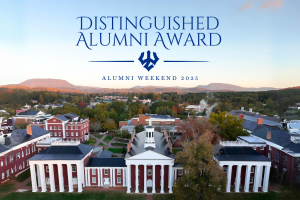
Down to Earth Megan Hill Gambrill ’05 had long fantasized about a job where she’d get to play in the dirt all day.
When her then-boyfriend Rob (the two married in 2013) was transferred to a different Porsche racing team, biology major Megan Hill Gambrill ’05 remembers looking up the Queen City on a map. “I was like, ‘OK, here’s a chance to see if my dreams of farming are just dreams.’”
In 2009, Gambrill joined Turner Farm, the largest certified-organic farm in the region, and began managing production in 2012. She’s stayed busy growing, marketing and selling specialty crops — produce that’s often destined for the city’s best farm-to-table restaurants. During her first season, Gambrill realized, “I love being outside on my own. I deeply enjoy many of the tasks others shy from. It makes you feel both fulfilled and helpful.”
She relished the challenges agriculture presents. “There’s only so much you can control,” she said. “You have to be really focused, know your soil and know your plants. There are so many variables to consider, both long term and short term, that will impact your land, your employees and your business. And you have to put in really long days and really long weeks.”
There was also the personal challenge. “If I continue to manage other people’s farms, I will never be able to buy my own. You just can’t save the money, and land prices keep going up.”
In 2016, Gambrill shifted to Carriage House Farm, which produces grains, honey and vegetables. She also joined the board of directors as president of Granny’s Garden School, a nonprofit that offers elementary school children hands-on agriculture experiences. The organization had shut its doors, but Gambrill recruited new board members and hired a garden educator to work with students at Loveland Primary School tending its vegetable and flower gardens.
“Today we are so far removed from the natural world,” Gambrill said, “and that’s an incredible tragedy. Understanding where your food comes from, and the effort necessary to grow your food, is critical for us as a culture. One can’t expect children to make the connection between salad kits and field lettuce, breaded chicken tenders and actual chickens or the energy necessary to bring those items to the table, if they’ve never been exposed to the soil, plants, people and animals that make those products possible.”
Gambrill is wrapping up an Executive M.B.A. from Xavier University and is coming to terms with the idea that she’ll probably soon walk away from the fields. She’s looking to join a large agriculture commodities company, a Cargill or a Bunge, where she feels she can have a greater impact on the environment. Executives there, she hypothesized, have the incentive to invest in addressing issues around healthy soil and water, as their long-term future depends on these factors.
“Working for a company that has that power from selling large amounts of food and feedstock and relies completely on what the earth can provide to maintain its wealth — I’d like to play in that world,” she said.
If you know any W&L alumni who would be great profile subjects, tell us about them! Nominate them for a web profile.
 Megan Hill Gambrill ’05
Megan Hill Gambrill ’05

You must be logged in to post a comment.